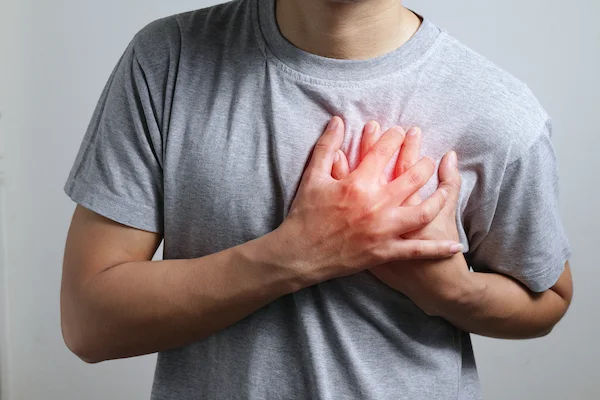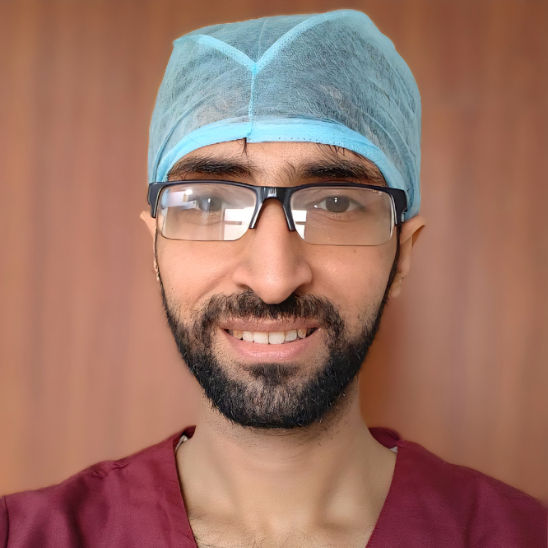Difference Between Heart Attack and Cardiac Arrest
Know the difference between a heart attack and cardiac arrest through its symptoms, causes and how to act during cardiac arrest and a heart attack.

Written by Dr. Mohammed Kamran
Reviewed by Dr. D Bhanu Prakash MBBS, AFIH, Advanced certificate in critical care medicine, Fellowship in critical care medicine
Last updated on 28th Jul, 2025

Introduction
Heart health is crucial, and knowing the difference between a heart attack and cardiac arrest can save lives. While both are serious medical emergencies, they are not the same. Understanding their symptoms, causes, and treatments can help you act quickly in an emergency.
What is a Heart Attack?
A heart attack ( or myocardial infarction) occurs when blood flow to a part of the heart is blocked, usually due to a clot. Without oxygen-rich blood, the heart muscle begins to die.
Symptoms of a Heart Attack
The symptoms of a heart attack include:
Chest pain or discomfort (characterised by pressure, squeezing, or fullness)
Pain spreading to the arms, back, neck, jaw, or stomach
Shortness of breath
Cold sweat, nausea, or dizziness
Fatigue (especially in women)
Symptoms may develop slowly (over hours or days) or suddenly.
Causes of a Heart Attack
A heart attack may be caused due to:
Blocked coronary arteries (due to plaque buildup)
Blood clots
Spasms in the coronary artery (rare)
What to Do in a Heart Attack?
In case of a heart attack, do the following things:
Call emergency services immediately (e.g., 108 in India).
Chew an aspirin (if not allergic) to prevent further clotting.
Stay calm and rest while waiting for help.
What is Cardiac Arrest?
Cardiac arrest is an electrical malfunction in the heart, causing it to stop beating suddenly. Unlike a heart attack, which is a circulation problem, cardiac arrest is an electrical failure leading to unconsciousness and death within minutes if untreated.
Symptoms of Cardiac Arrest
The typical symptoms of cardiac arrest include:
Sudden collapse
No pulse or breathing
Loss of consciousness
Gasping or no breathing at all
Causes of Cardiac Arrest
The causes of cardiac arrest include:
Irregular heart rhythms (arrhythmias, like ventricular fibrillation)
Severe heart attack
Electrolyte imbalances
Trauma (e.g., electric shock, drowning).
Consult cardiologist for further queries
What to Do in Cardiac Arrest?
Follow the below things in case of a cardiac arrest:
Call emergency services immediately.
Start CPR (chest compressions) right away.
Use an AED (Automated External Defibrillator) if available.
Key Differences Between Heart Attack and Cardiac Arrest
| Feature | Heart Attack | Cardiac Arrest |
| Cause | Blocked blood flow | Electrical malfunction |
| Heart Function | Still beating (but damaged) | Stops beating suddenly |
| Symptoms | Chest pain, sweating, nausea | Sudden collapse, no pulse |
| Onset | Can be gradual | Sudden |
| Emergency Action | Call for help, take aspirin | Call for help, start CPR + AED |
How to Reduce Your Risk?
1. Healthy Lifestyle Choices
Eat a balanced diet which includes fruits, vegetables, whole grains, and lean proteins.
Exercise regularly (30 minutes/day, 5 days a week).
Quit smoking and limit alcohol.
2. Manage Underlying Conditions
Control blood pressure, cholesterol, and diabetes.
Maintain a healthy weight.
3. Recognise Early Warning Signs
The early warning signs include:
Get regular check-ups if you have risk factors like family history, high BP, and diabetes.
Don’t ignore unusual symptoms like unexplained fatigue or chest discomfort.
4. Learn CPR & AED Use
It is vital to learn CPR and AED use as it can double or triple survival chances in cardiac arrest. And AEDs are also easy to use.
When to See a Doctor?
If you experience any of these signs and symptoms, see your doctor immediately
Frequent chest pain or discomfort
Unexplained shortness of breath
Dizziness or fainting spells
Final Thoughts
While heart attacks and cardiac arrests are both life-threatening, they require different responses. A heart attack is a plumbing issue (blockage), while cardiac arrest is an electrical failure (sudden stopping). Knowing the difference can help you act fast and save a life.
Consult cardiologist for further queries
Consult cardiologist for further queries

Dr. Amit. A. Bharadiya
Cardiologist
12 Years • MBBS, MD General Medicine, DNB Cardiology, FSCAI
Maharashtra
Surabhi Hospital, Maharashtra, Maharashtra

Dr. Mangesh Danej
Cardiologist
8 Years • MBBS, MD (General Medicine), DNB (Cardiology)
Pune
Dr Danej clinic, Pune
(375+ Patients)
Dr. Dixit Garg
Cardiologist
10 Years • MBBS , DNB (General medicine) , DNB (cardiology)
Gurugram
Smiles & Hearts, Gurugram

Dr. Pinaki Nath
Cardiologist
8 Years • MBBS, MD General Medicine, DM Cardiology
Barasat
Diab-Eat-Ease, Barasat
Dr. Sibashankar Kar
Cardiologist
10 Years • MBBS, DNB
Bhubaneswar
Hi-Tech Medical College & Hospital, Bhubaneswar